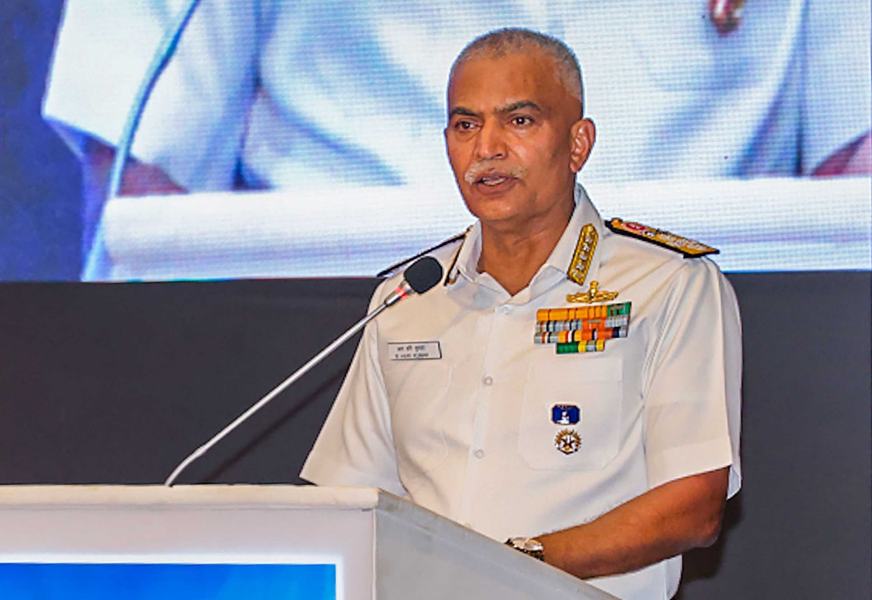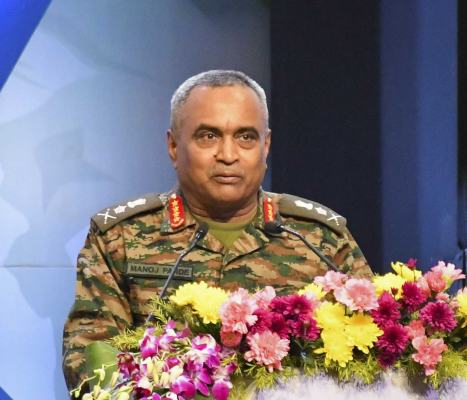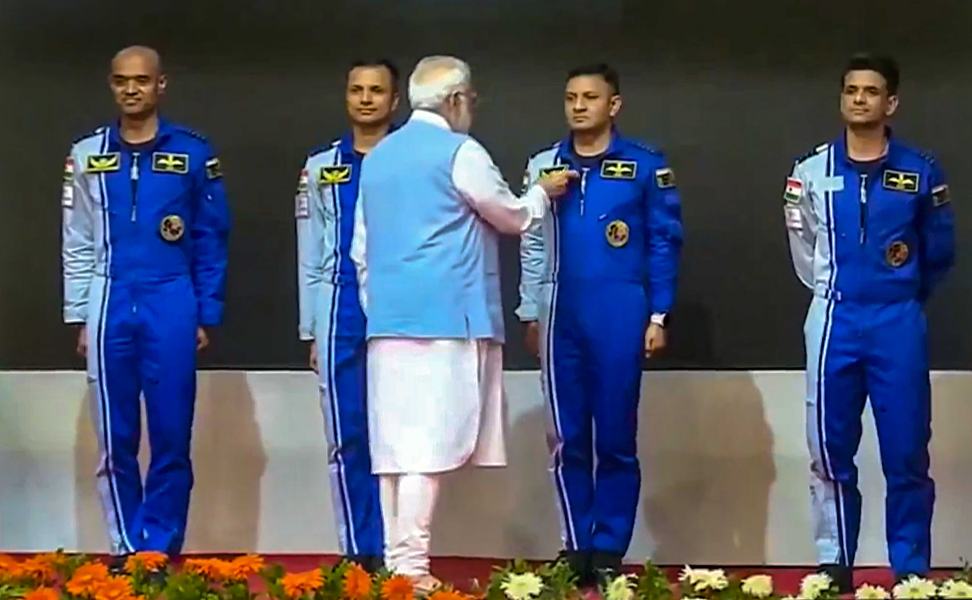
A PTI photo
PUNE (PTI): Chief of Naval Staff, Admiral R Hari Kumar, has said seas will drive the growth and prosperity in future and therefore it is very important to ensure the seas remain safe, stable and secure.
He also said that BRAHMOS is a very potent missile and it is evolving as far as its range, capability, lethality and other aspects are concerned.
Notably, the Cabinet Committee on Security (CCS) has accorded approval for the procurement of more than 200 BRAHMOS supersonic cruise missiles and associated equipment for the Indian Navy at a cost of around Rs 19,000 crore.
Speaking at the Maharashtra MSME Defence Expo organised here on Monday, the naval chief said in the current and future security paradigms, concerns about the proliferation of sensitive technologies like WMD (weapons of mass destruction), missiles and drones have assumed new roles because non-state actors and rogue states are using them for asymmetric advantage.
He said 88 per cent of the country's oil imports are from the seas and the exclusive economic zone, which is about 2 million square km, contains a significant amount of marine resources and wealth.
The seas and oceans around them are therefore of great importance for the economy, he added.
"As our nation tries to find a rightful place in the comity of nations, it is given that the seas will drive growth and prosperity in the future. As we move to the third largest economy, the maximum trade will go through seas, and therefore, it is very important to ensure seas remain safe, stable and secure, and that is the job of marine, maritime security agencies like the Indian Navy and Coast Guards," he said.
Admiral Kumar said he is convinced the country is currently transiting through a contested present into an uncertain future, and there will be intense competition across the entire spectrum.
"These are also aggravated because of the non-state actors, state-sponsored actors, business and interest groups utilising disruptive technologies," he said.
While the future is already difficult to predict, the uncertainties which define the estimates for the forthcoming decades are truly significant. These are the outcome of rapidly expanding scope, scale and depth of capabilities that certain emerging drivers offer, and one such driver is technology, he said.
In the current and future paradigms, concerns about the proliferation of sensitive technologies like WMD, missiles and drones have assumed a new role because non-state actors and rogue states are using these technologies for asymmetric advantage, as is being seen in West Asia today, the naval chief said.
"So, the Indian Navy remains at the forefront in safeguarding the critical global trade routes and India's maritime interests with the ongoing anti-drone and anti-piracy operations, protecting merchant vessels, both in the north and west Arabian Sea from missile attacks and pirates," he said.
The Indian Navy will not hesitate to deploy a full spectrum of capabilities to ensure the safety, security and stability of the Indian Ocean Region (IOR), he said.
Admiral Kumar said that in 'Atmanirbhar Bharat', the key pillar is the "atmanirbhar" (self-reliant) defence industry.
"While it has commercial and fiscal facets, one must remain cognisant that atmanirbharta and defence are no longer an economic imperative, but a strategic requirement for retaining strategic autonomy, as depending on external sources for defence equipment would become a strategic vulnerability which can hamper the security and growth of the nation, and this is something that cannot be compromised," he said.
The Indian Navy's current strength is about 130-plus ships and 250 aircraft, he said, adding that they anticipate this will grow to 175 ships and 400 aircraft by 2035.
Later, speaking to reporters about the CCS clearing a deal for 200 BRAHMOS missiles for the Indian Navy, Admiral Kumar said BRAHMOS is a very potent missile and it is evolving as far as its range, capability, lethality and other aspects are concerned.
"The fact is that it is made in India, and we are no longer dependent on anybody else. It can be repaired and spares are available. It is going to be the mainstay for something, and that is why we are replacing all our old missile systems which we got from other countries and installing BRAHMOS as we got the expertise to install it in a very quick time," he said.
 Previous Article
Previous Article Next Article
Next Article













The Indian Air Force, in its flight trials evaluation report submitted before the Defence Ministry l..
view articleAn insight into the Medium Multi-Role Combat Aircraft competition...
view articleSky enthusiasts can now spot the International Space Station (ISS) commanded by Indian-American astr..
view article